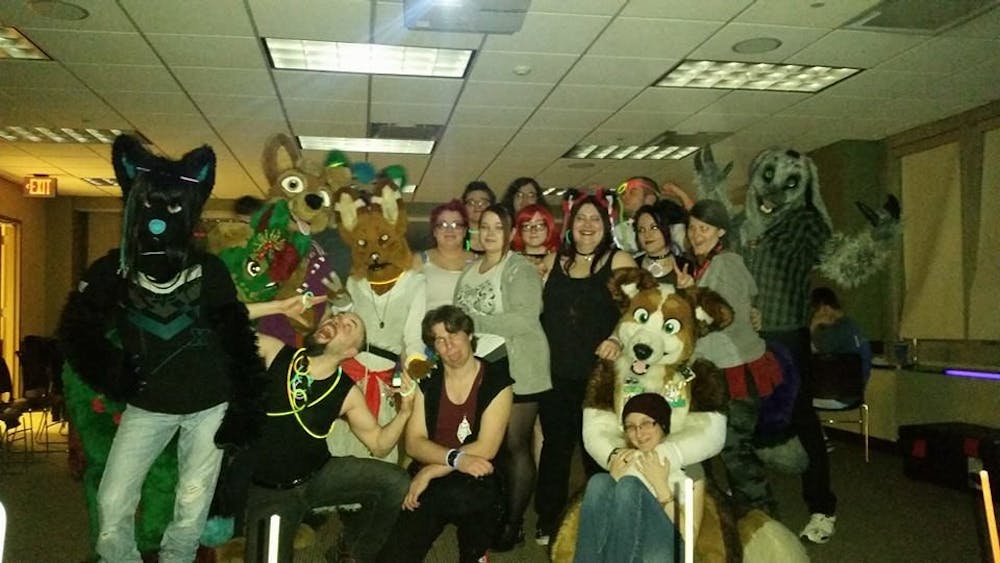Ball State AAS meets Thursdays at 9 p.m. in the Forum Room in the L.A. Pittenger Student Center.
The community and bonding that Ball State's Anthropomorphic Art Society provides is more important than the costumes they may wear, said the organization's president.
Ball State’s Anthropomorphic Art Society (AAS) focuses on the appreciation of art styles concerning anthropomorphized animals—animals with human characteristics such as being able to talk and having human emotions. However, Stephen Vogel, the president and a senior Japanese major, said what is more important is the bonding the organization experiences.
“The main purpose of the group is to bring together individuals with a common interest, give a safe and comfortable environment where these individuals can meet others with similar interest and have discussions,” Vogel said in an email.
Ball State AAS was officially started in Spring 2010. Members, who may also be referred to as “furries,” get together to discuss various aspects of anthropomorphic art, including crafting and how to act as a “fursuiter.” Fursuits are animal-based costumes ranging from “simple tails and ears to full costumes with mechanical/electronic components,” according to WikiFur, an offset of Wikipedia dedicated to the furry community.
Dressing in suits is just one segment of the furry community, and not something everyone involved in the group chooses to do. Ball State AAS meetings include discussions based on topics related to the community such as conventions and anthropomorphism in media. The group hosts activities such as drawing tutorials, game nights and movie viewings.
"The meetings aim to be an open-floor discussion with a topic just to get conversation going. We try to avoid it becoming a lecture," Vogel said. "This coming meeting, we are showing short animation clips with anthropomorphic art followed by any discussion of the clips."
Ball State is one of only two college anthropomorphic societies in the state, Vogel said. Appreciation groups aren't limited to college campuses such as Ball State and Purdue University, where the other group is located. Similar groups are formed in local areas where individuals can meet up and discuss their common interest.
Vogel stressed that while the furry community may be misunderstood, people should recognize that it is just one part of a person’s personality.
“A lot of people tend to feel uncomfortable around people that they know are ‘furries,’” Vogel said. “But really...they are just normal humans who have a different interest than other people.”
Allyssa Burdine, a freshman biology major, had always had an interest in anthropomorphic art and joined the group after meeting them at the activities fair this fall. She said she enjoys having a group of friends who share her passion.
“When I found a group of people here on campus that shared a common interest with me I knew I wanted to find out more about the club and everything they stood for,” Burdine said. “To anyone who doesn't understand the club, what I think they should take away is the idea that we are much like a family and it is a way for people with a common interest to come together and have a good time playing games and learning more about each other and anthropomorphic art.”





